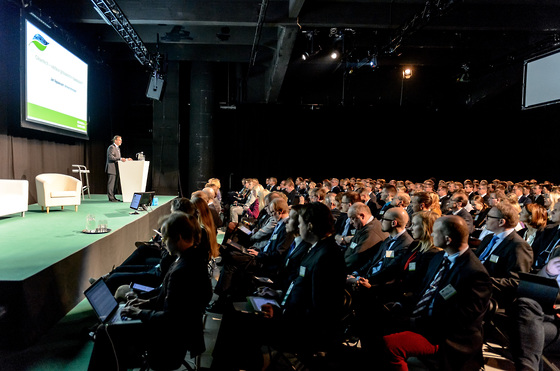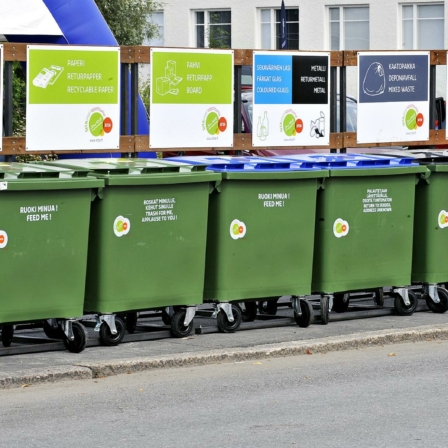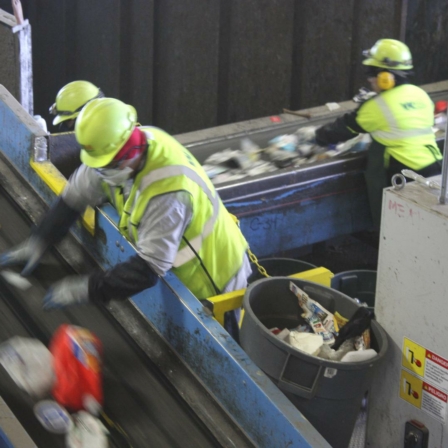On 25 February 2014, over 600 cleantech professionals, entrepreneurs, lawmakers and three cabinet ministers got together in a renovated industrial building in Helsinki to discuss the future of Finnish green growth and cleantech. Jan Vapaavuori, Minister of Employment and the Economy, opened the event with a grim reminder of the current state of affairs in the world. While the Finnish cleantech industry can be proud of a 15% annual growth in turnover (for 2012), there is much to be done still. Global challenges such as the need for clean air, food and water, or the challenges that are posed by fast-paced urbanisation, mean that the cleantech industry will not run out of problems to solve.
“While Finland is certainly in the forefront of forging the economic and ecological change that cleantech enables, our government and companies need to move faster and take on bigger challenges,” the President of Sitra Mikko Kosonen said during the panel discussion on the global challenges that cleantech is tackling.
The markets for Finnish cleantech solutions lie due east and south: in Russia, China, India and Africa. Mr Kosonen emphasised that the key to cleantech’s success in building a sustainable world also means supporting people in changing the way they behave and conduct business. Only companies that adopt a sustainable way of doing business will survive in the long run. Change is the only constant; what is considered clean technology now will not be enough in the future, as the population keeps growing but natural resources do not.
Public–private co-operation
Global problems and markets might seem daunting to small and medium-sized enterprises (SMEs). But Sitra has already addressed this problem in its Environment Programme during 2005-2007, the outcome of which was a national action plan for cleantech business development. It included suggestions for using public procurement as a strategic tool for market entry by companies with new cleantech innovations and the establishment of Cleantech Finland as a national brand and co-operation vehicle for cleantech companies. Both Sitra and Tekes (the Finnish funding agency for innovation) offer further help to SMEs by providing funding for those firms offering sustainable business solutions to climate change problems. Tekes also runs programmes and campaigns for companies seeking support for rapid growth and research and development.
Regulation – necessary but tricky
Mari Pantsar-Kallio, Sitra’s Director of Resource-wise and carbon-neutral society, chaired the panel discussion about the role of the European Union and regulation in the cleantech industry. The need for predictability in regulation arose as a crucial component time and again. It was refreshing to hear from a corporate CEO, Hans Sohlström of Rettig Group, that regulation itself is usually not the problem. The problem is the rapid cycle of change in regulation that makes long-term planning nearly impossible.
Some of the key markets for cleantech include countries where political support at a national level is a necessity for businesses. Top corporate leaders such as Ilkka Herlin from Cargotec spared no praise for the consistent work that politicians have done to open the door to business in Russia, for example.
Can Finland become a superpower of cleantech?
Yes, was the unanimous answer to this question, posed by Strategy Director Kaisu Annala from the Ministry of Employment and the Economy. Mika Anttonen, Chairman of the Board of ST1, stressed that Finland cannot be a superpower throughout the whole of the cleantech industry. “We need to do the math and choose where we can be the best in the world. We need to seek excellence and not be OK with average.”
The human factor
One point that resurfaced time and again during the day was the human factor. Technology, cleantech included, will only help if people want to use it and are shown how. People need to be educated about the pros of recycling and building energy-efficient housing, how to run a sustainable business and how to factor in the ecological impact of their decisions. It takes the global village to save the global village.
Johanna Eiramo





Recommended